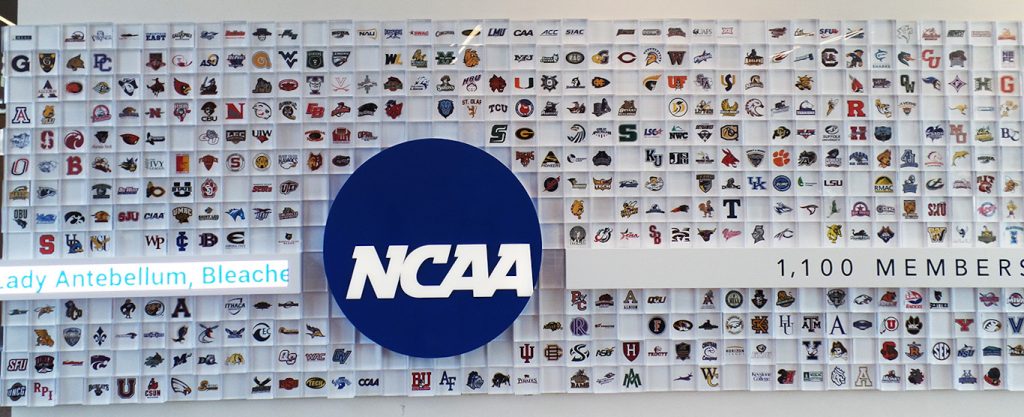
While the internet has had endless fun with the term “Transfer Portal,” coaches and administrators have voiced a decidedly negative opinion of the NCAA’s new Division I transfer policies. The new rules, which have been characterized as a “liberalizing” of previous policy, are certainly more athlete friendly.
The first major change, which involves the aforementioned portal, took effect for DI football on October 15th and granted student-athletes the ability to forgo requesting a transfer from their current institution and instead simply enter into a database. Entry to this Transfer Portal allows communication with any university the player wishes for the purposes of transferring.
While the optics are much better, with schools no longer able to deny transfer or communication once a player is in the portal, the challenge has arisen over how teams handle players who opt to stick with their current institution. Under the current rules, a university may rescind a scholarship for a player who unsuccessfully sought a transfer. As pointed out by SB Nation, this rule will likely be unevenly applied both by a program and by a player’s talent level, with less capable athletes more likely to be impacted.
The second and far more contentious portion comes in the form of an NCAA waiver which waves the requirement that transferring undergraduates sit-out a year before becoming eligible at their new institution. While players have been able to petition the NCAA in the past, the new rules have proven to make immediate eligibility much more accessible. “There were some discussions, saying, ‘A waiver is extraordinary circumstances,” says West Virginia athletic director Shane Lyons. “You really have to prove that. Is 79 percent of the cases really that extraordinary?”
The challenge seems to be in how the rule has been both loosely defined and interpreted by the NCAA. Under the guidelines, an NCAA waiver may be granted if the applicant meets the following criteria:
-The transfer is due to documented, mitigating circumstances outside the athlete’s control and directly impacting his or her health, safety or well-being.
-The transfer must have been eligible athletically and academically and “in good standing” on the prior team.
-The student-athlete meets progress toward a degree at the new school.
-The previous school’s athletic department does not oppose the request.
The vague nature of the guidelines, as well as the frequency of approvals, has come under fire from numerous coaches and administrators who know this is likely a response to legal threats and public opinion.
For their part, coaches who have commented on the new rules have done a poor job hiding their true concerns. “You’re in a very, very challenging position in terms of managing your roster, how to recruit, all those types of things,” says Penn State’s Franklin. No longer having the deterrents of denying requests and lost eligibility is creating roster management challenges that coaches at the college level have never seen.
In the fight over the new NCAA waiver requirements, attorney Thomas Mars has been especially successful. He has guided a pair of transferring quarterbacks to immediate eligibility and potential starting positions at both Michigan and Ohio State next season. True to his calling, he makes a solid case for a further loosening of the rules.
“Why are the NCAA member institutions still trying to put lipstick on this pig by retaining a rule that exists only so they can continue to treat student-athletes like assets on their balance sheet?”
This opposition has led the NCAA Committee for Legislative Relief to review the policies this week, with recommended adjustments likely. The question is in which direction those adjustments will go. It is just as likely that the recommendation is made to tighten transfer guidelines as it is that the NCAA bends to public perception and the one-year transfer penalty is eliminated altogether.
This story first appeared in Thursday’s edition of The NightCap, a new nightly email from CollegeAD delivering today’s college athletics news tonight. Get The NightCap delivered to your inbox!
